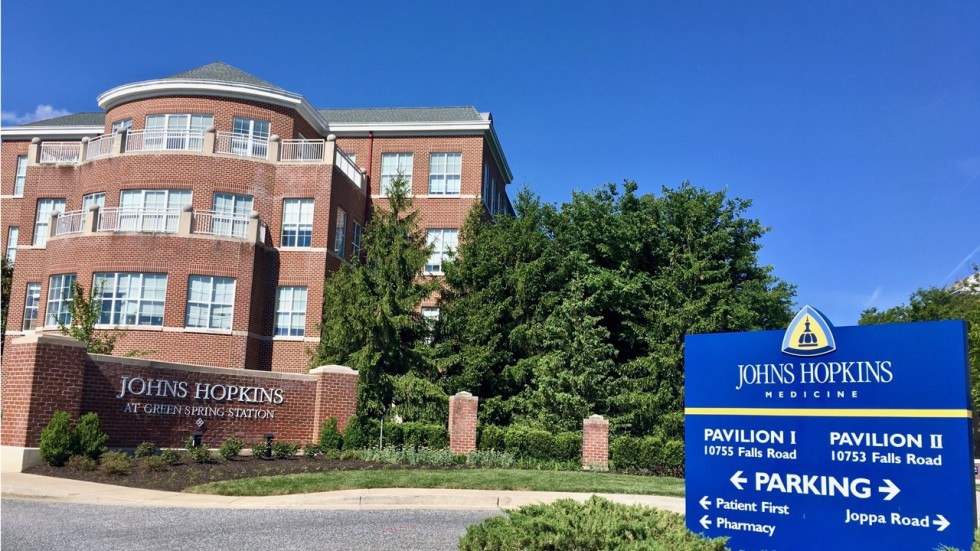| 일 | 월 | 화 | 수 | 목 | 금 | 토 |
|---|---|---|---|---|---|---|
| 1 | 2 | 3 | ||||
| 4 | 5 | 6 | 7 | 8 | 9 | 10 |
| 11 | 12 | 13 | 14 | 15 | 16 | 17 |
| 18 | 19 | 20 | 21 | 22 | 23 | 24 |
| 25 | 26 | 27 | 28 | 29 | 30 | 31 |
- 부추전
- 전세사기
- 열차취소
- 조정대상지역
- 세자매
- 1000원 반찬
- 투기과열지구
- 강릉중앙시장
- 동그랑땡
- Namyangju-si
- 대지급금
- 조정지역
- 콩나물두부찜
- 남항진
- 수지분석
- 김치찌게
- 남항진맛집
- 남양주
- 경매
- 재산세
- 치킨
- 이마트24
- Namyangju
- 담보신탁
- 과밀부담금
- 꼬막
- 돈까스
- 강릉
- 신탁사
- 도시락
- Today
- Total
ordinarylife
SCM] 존슨 호프킨스 의대 외국 과학자 방문 금지 본문
US medical school Johns Hopkins bars foreign scientists over intellectual property risk
- No more visiting scientists until government agency ‘can safely allow foreign nationals to be involved with government-sponsored research’
The Johns Hopkins University School of Medicine has halted a visiting scientist programme in response to a national investigation over whether scientists in the US are sharing research results with foreign governments, in particular China, the South China Morning Post has learned.
존슨 호피킨스 의대는 외국 과학자 방문을 금지 시킴
Although the suspension affects scientists from many countries who plan to conduct research at the top medical school, the move is primarily aimed at Chinese scientists and China’s flagship science talent recruitment programme, researchers for Beijing’s Thousand Talents Plan have said.
이런 중단사태는 전세계 과학자들에게 적용 되지만 주요하게 중국 과학자들을 타겟으로 함.
“Effective immediately, the Johns
Hopkins School of Medicine is temporarily halting the appointment of visiting scientists due to concerns voiced by the National Institutes of Health [NIH] about threats to biomedical research and loss of intellectual property,” read an email late last month from the Johns Hopkins Hospital to its faculty, the Department of Neurology, which was seen by the Post.
호프킨 대학의 조치는 바이오메디칼 지식자산 유출을 두려워하는 목적입니다.
The university’s fraud unit has also discovered that some individuals have fabricated their funding documentation, the email said.
“Therefore, Johns Hopkins will not be hosting any visiting scientists [aside from those already here] until the NIH feels we can safely allow foreign nationals to be involved with government-sponsored research.”
In an earlier request for comment the medical school denied that it had halted the programme. It did not reply to a further request to respond to comments by scientists.
“While an email did go out to some faculty in one department, its contents were false,” a spokeswoman for the school said, adding that the school continued to offer and encourage visiting scientist appointments.
“Instead, what did happen was in response to a public message from NIH director Francis Collins, The Johns Hopkins University School of Medicine recently reminded faculty members to review and comply with NIH policies related to NIH-funded research activities that have a foreign component.”
US and China clash over Donald Trump’s intellectual property claims at WTO meeting
“The incident will affect up to 1,000 scientists if the suspension lasts a year, with many of them from China,” a US-based Chinese biomedical researcher told the Post. He agreed to be identified only by his surname, Zhang, for fears his comments might impact his career in the US.
“It’s necessary to protect intellectual property, but the suspension doesn’t help scientific research, which requires international collaboration,” said Zhang. “They need to strike a balance.”
China’s science talent recruitment programme has come under the spotlight of late, with US government agencies increasingly scrutinising Chinese programmes that they suspect are used to steal US technologies and intellectual property.
The most prominent of these is the Thousand Talents Plan, which was launched by Beijing in 2008 to tap into the talent of Chinese scientists educated or employed overseas.
It has attracted more than 7,000 researchers back to China – most from the US – with lucrative positions and substantial research grants. Many researchers in the programme maintain their overseas affiliations while working part-time in China.
The talent plan aims to “facilitate the legal and illicit transfer of US technology, intellectual property and know-how” to China, an analysis by the National Intelligence Council, a US intelligence unit, stated in April.
How China’s rampant intellectual property theft, long overlooked by US, sparked trade war
In August, the NIH, the nation’s largest research funder, began investigating whether grantees were sharing research findings with foreign governments, with NIH director Francis Collins sending a letter to more than 10,000 institutions to urge them to do likewise.
“The robustness of the biomedical research enterprise is under constant threat by risks to the security of intellectual property,” Collins said at a US Senate hearing in August after he sent the letter.
“But through conversations with law enforcement – and even just from watching the press – we can see that the magnitude of these risks is increasing.”
In response to a query, the NIH told the Post: “The goal of the efforts described in Dr Collins’ statement and letter to universities is to effectively root out examples where our system is being exploited.”
Trade war: why US and China remain so far apart on intellectual property rights
In a report titled Picking Flowers, Making Honey, the Australian Strategic Policy Institute last week alleged that China had been sending military scientists to Western universities to improve the People’s Liberation Army’s military capabilities.
According to the report, the PLA has sponsored more than 2,500 scientists to travel to universities in technologically advanced countries as students or visiting scholars over the past decade.
'영어회화 단어' 카테고리의 다른 글
| Lyrics: Smooth operator (0) | 2018.12.15 |
|---|---|
| 히라가나 (0) | 2018.11.21 |
| SCMP] 39세 중국 여성 14명 어린이에게 칼부림 (0) | 2018.10.26 |
| SCMP] 캐세이 퍼시픽의 고객 940만영의 개인정보 유출 (0) | 2018.10.25 |
| 오늘영어]오늘 얼마나 바뻣니? (0) | 2018.10.15 |




Comments: 69